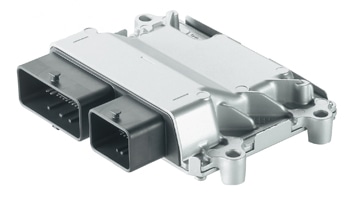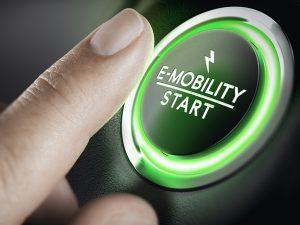Electric Vehicle Control Module (VCU)
Overview
The EV control module is a low-voltage control module. It is responsible for most processes relating to the functional aspects of electrical or hybrid-electrical vehicles.
The EV control module takes a variety of driver inputs and calculates a torque value to be sent to the inverter. This torque value is proportional to the accelerator and brake pedal positions as well as the gearbox setting and is arbitrated via any other vehicle torque demands, such as from the electronic stability control system.

Features
- Power modes for EV, HEV (e. g. start-up, driving, charging, error)
- Torque request acquisition and validation
- Torque Management on HEV and EV (e. g. calculation of driver torque demand, drivability filtering and torque limitation)
- Vehicle Powertrain Control
- Transmission Gear Control
- Battery Charge (AC & DC)
- Thermal management
- Energy management
- Safety L3 Monitoring unit
- ISO26262 compliant (ASIL C)
Benefits
- Proven platform control algorithms available
- Hardware based on cost-effective, high-volume platform
- All necessary communication standards can be achieved
- Basic software according to AUTOSAR standard



